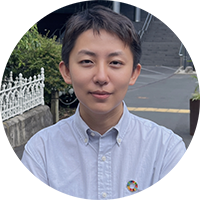What
The fifth annual Impact Symposium will be hosted online. The session will address the emerging challenges of embedding engagement into the impact journey with regards to REF and beyond.
Who
This event is for academics, researchers, Impact Managers/Officers, Research Managers/Directors working within the UK research space.
Why
The introduction of engagement into the REF’s impact section creates new opportunities for UK universities to demonstrate the effectiveness of their work beyond academia.
| 09:15 – 09:45
|
Keynote Session
trends in IMPACT & ENGAGEMENT
|
Laura Tucker
CEO, hivve |
| 09:45 – 10:30 |
Panel Discussion #1
Strategies for Embedding Engagement into Impact Initiatives |
CARLOS GALAN-DIAZ FORMERLY THE ACTING DIRECTOR OF RESEARCH & INNOVATION SERVICES AT THE UNIVERSITY OF ST ANDREWS Audrey Tan
Head of Public Engagement, Queen Mary University of London (QMUL)
Emily Walker-Williams
Impact Officer, Liverpool John Moores University (LJMU)
|
| 10:30 – 11:15 |
Panel Discussion #2
Practical Considerations for REF Preparation – Doing more with less |
Jean Malan
Impact Framework Officer, University of Greenwich
Anne-Marie Greene
Research Impact Lead, University of York
Jackie Reynolds
Impact Officer, Staffordshire University
|
| 11:15 – 11:30 |
Closing Remarks
|
Laura Tucker
CEO, hivve |
It has now been ten years since research impact was first formally assessed by the Research Excellence Framework (REF), and preparation is well underway across UK academia for the 2029 cycle. However, the hundreds of institutions and tens of thousands of staff nationwide occupy startlingly different stages on the impact maturity spectrum.
Structural upheavals, peripatetic academics and conflicting priorities prevent universities from successfully implementing systematic approaches to managing the impact lifecycle. Meanwhile, an influx of new staff with limited experience in impact creates challenges around knowledge transfer, resourcing and internal management.
hivve is delighted to convene our fifth Impact Symposium online, as we seek to address these challenges and provide a benchmark for helping attendees along their own personal and institutional impact journeys.
Thank you for hosting a free of charge event like this and for providing inspiring examples of university research in action, making a positive difference to local communities.
This was the best event I have ever attended!
It was a well-run event, with an impressive range of speakers. Very interesting and informative.
Steve Kenzie
Executive Director for the UN Global Compact Network UK
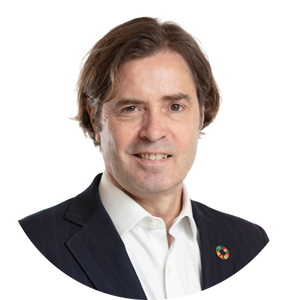
Steve has managed the Secretariat of the UN Global Compact Network UK since 2007, connecting UK companies and other organisations in a global movement dedicated to driving corporate sustainability and the Sustainable Development Goals. He has been Chair of the UN Global Compact’s Global Network Council and was a member of the UN Global Compact Board.
He was previously a Programme Director at the International Business Leaders Forum (IBLF) leading projects across a wide range of responsible business issue areas. Prior to joining IBLF, Steve was the founder and Managing Director of a successful retail sports equipment business in Canada.
He has a B.Comm from the University of British Columbia and an MSc in Business & Environment from Imperial College London.
Dr Kate Roll
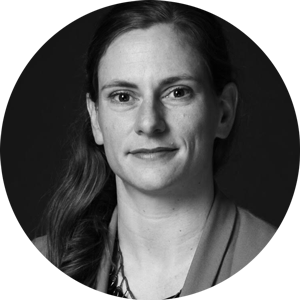
Dr Kate Roll is a political scientist interested in vulnerability, with a particular focus on how people in poverty and following conflict gain greater social and economic security. She currently serves as an Associate Professor in Innovation, Development and Purpose and Head of Teaching at UCL’s Institute for Innovation and Public Purpose and the Faculty Lead for Public Policy for The Bartlett.
Her multi-disciplinary work brings together politics and policy, business ethics, and development studies. Committed to grounded research, she has conducted in-depth field research in Timor-Leste, Indonesia, the Philippines, and Kenya. Recent projects have focused on the United Nation’s Sustainable Development Goals, and she leads the UK’s Sustainable Development Solutions Network (SDSN).
Prior to joining IIPP, Kate was based at the University of Oxford, where she ran a large, multi-year research partnership on responsible business and contributed to the strategy and innovation curriculum at the Saïd Business School. She holds a BA from Brown University, and an MPhil in International Development Studies and DPhil in Politics from the University of Oxford.
Anca Tacu
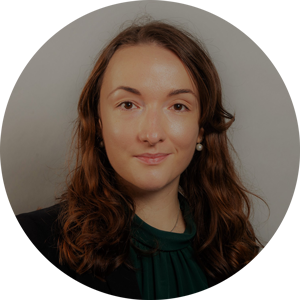
Anca Tacu is the Network Manager for the UK hub of the UN Sustainable Development Solutions Network (SDSN), playing a key role in the growth and strategic development of the network. The SDSN UK hub is hosted by UCL IIPP, and it brings together and mobilises higher education institutions within the UK around practical solutions that contribute to the implementation of the 17 UN SDGs.
As part of her work, Anca has directly contributed to the ‘Measuring Up 2.0’ report, a key publication produced by the UN Global Compact Network UK. Anca’s contribution includes being an author on two of the report chapters – SDG 13 ‘Climate Action’ and data gaps.
Anca holds an MSc in Management with Business Strategy and the Environment from Birkbeck College, University of London.
Panel #1 Speakers
Dr Steven Hill
Director of Research at UKRI

Steven Hill is Director of Research at Research England. Steven was formerly Head of Research Policy at the Higher Education Funding Council for England (HEFCE), and leads on all aspects of research policy and funding.
Steven is responsible for research funding, including quality-related funding (QR), general capital funding and the UK Research Partnership Investment Fund (UKRPIF). He also leads Research England’s research assessment and policy work, and is the chair of the steering group for the 2021 Research Excellence Framework (REF). Policy responsibilities include research integrity, public engagement and open research, and Steven contributes to debates and discussions at home and overseas on the enhancement and assessment of research impact
Dr Simon Kerridge
Principal Consultant at Kerridge Research Consulting

Simon has been a research manager and administrator for over 30 years, now an independent research consultant he previously led the research office at the University of Kent where he has had responsibility for all aspects of the research support including pre-award, post-award, impact, information, strategy, assessment and governance.
He has a passion for research management and administration (RMA) as a profession and leads the INORMS (International Network of Research Management Societies) RAAAP (Research Administration as a Profession) Task Force that is collecting longitudinal data about the profession. He was given the 2022 Innovation Award from CARA the Canadian Association of Research Administrators for his leadership on RAAAP. Simon sits on a number of RMA related committees and groups including being a board member for EARMA the European association. He is also co-chair of the NISO Standing Committee for CRediT the contributor role taxonomy for journal authorship.
He has recently finished working as a panel advisor for Research England as part of the UK Research Excellence Framework, supporting the Social Sciences panel, including the assessment of research impact.
Simon teaches on the Johns Hopkins’ masters in research administration and is an editor of the Journal of Research Management and Administration. He was an author of Metric Tide report and holds a professional doctorate in Electronic Research Administration.
Dr Saskia Pagella
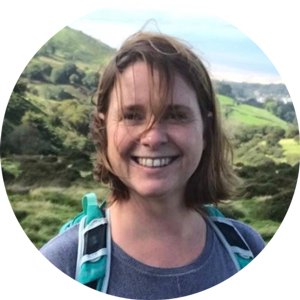
Dr Saskia Pagella has recently been appointed as the Head of Integrated Research and Impact Support (IRIS) at Bangor University.
She has worked for the University for more than a decade in a variety of teaching and research roles. Having completed her PhD in Soils and Environmental Science in 2010, she worked as the Programme Coordinator for the Welsh Government-funded Climate Change Consortium of Wales (C3W) working with Bangor, Cardiff, Aberystwyth and Swansea Universities.
The £4million, 5-year project was funded to bring together scientists working across disciplines and to deliver a wide range of engagement activities focused on improving societal understanding of climate change science. This included informing decision-making by Government, policymakers and businesses and delivering resources and sessions within the education sector and for the public.
From 2016, Saskia has managed Bangor University’s research impact portfolio with a good proportion of the research outcomes across the university delivering on the UN Sustainable Development Goals. The University was ranked in the top 30 in the UK in the recent Research Excellence Framework (REF2021) for the societal impact of its research, demonstrating the outstanding and far-reaching benefits Bangor’s research is having globally.
Case Study Speaker
Alan Chandler
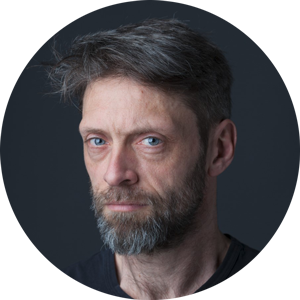
Alan Chandler is Dean of Research at the University of East London and is a Director of the conservation based practice Arts Lettres Techniques.
The politics of built heritage underpins the supervision of many of my doctoral students work, and has been published by Routledge – ‘The Production of Heritage’. My professional career as a Specialist Conservation Architect and Co-Chair of the RIBA Conservation Steering Group fully informs my teaching and research, with practice projects on National monuments such as the Grade 1 listed St Pancras Church and the Palacio Pereira in Santiago de Chile with Cecilia Puga.
Alan Chandler has previously taught at the Architectural Association, Goldsmith’s College of Art, Cambridge University and Edinburgh University.
Keynote Speaker
Sir Peter Gluckman
President, International Science Council

Distinguished Professor Sir Peter Gluckman is the director of Koi Tū: The Centre for Informed Futures, a think tank focused on long-term complex problems, which is hosted at Waipapa Taumata Rau, University of Auckland. He was first Chief Science Advisor to the Prime Minister of New Zealand from 2009-2018, the former foundation chair of the International Network of Government Science Advice (INGSA) and is president of the International Science Council.
He was awarded CNZM in 1996, DCNZM 2008 redesignated as KNZM in 2009, made a member of the order of New Zealand (ONZ, 2015) and received the Rutherford Medal in 2001.
He holds honorary chairs at the University College London, University of Southampton and National University of Singapore and is chief scientific officer of the Singapore Institute for Clinical Sciences. He was Executive Dean of the Faculty of Medicine and Health Sciences (1992-2001) and founding Director (2001-2009) of the Liggins Institute of the University of Auckland.
He has published over 750 scientific papers related to his research interests including hormonal development, neuro- and neuroendocrine-development, the development of executive functions, the evolution of puberty and adolescence. He has also authored many policy reports including a major report on adolescence to the government in 2011, followed by reports (2017) on youth suicide and mental health. He designed and still leads the major birth cohorts in Singapore (GUSTO, SPRESTO) and has designed and been principal investigator on numerous clinical trials. As director of Koi Tū he has led international studies and reports on social cohesion and leads major project on the broader causes of the rising rates of loss of youth mental wellbeing and on improving human capital in partnership with Ngāti Whātua Ōrākei.
He is a Fellow of the Royal Society of London (2001) and the Royal Society of New Zealand, a member of the National Academy of Medicine (USA, 2004), a fellow of the Academy of Medical Sciences (UK, 2006), a fellow of The World Academy of Sciences (2021). Amongst international awards he was awarded Singapore’s highest scientific honour, the Presidential Science and Technology medal in 2021 and the American Association for Advancement of Sciences Science Diplomacy award in 2016.
Panel #1 Speakers
Laura Rovelli
Coordinator of the Latin American Forum on Scientific Evaluation (FOLEC-CLASCO)
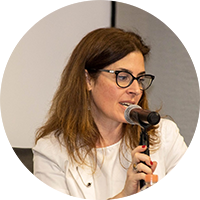
Laura Rovelli is a political scientist and PhD in Social Science from the University of Buenos Aires, Argentina. She is also adjunct researcher at the National Scientific and Technical Research Council (CONICET) and professor at La Plata National University, in Argentina.
Since 2020, she coordinates the Latin American Forum for Research Assessment (FOLEC) from the Latin American Council of Social Sciences (CLACSO) and from 2022 onwards, is a member of the Executive Board of DORA. At present, is member of UNESCO WG “Open Science incentives and financing” and CLACSO´S WG “Open Science as a Common Good”. Her lines of research focus on academic evaluation, doctoral and research training and incentives for open science.
Panel #2 Speakers
Professor Hugh P. McKenna CBE, PhD, B.Sc(Hons), RMN, RGN, RNT, DipN(Lond), AdvDipEd, FFN RCSI, FEANS, FRCN, FAAN, MEA, MEASA
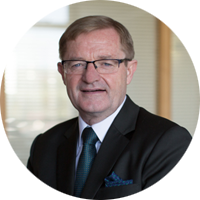
Professor Hugh McKenna was, until recently, Dean of Medical School Development and Pro Vice Chancellor Research and Innovation at Ulster University, UK. He has over 250 publications, including 17 books; his latest on Research Impact published by Springer Nature in 2021.
In 2014 and 2021, he chaired the UK’s Research Excellence Framework’s (REF) expert panel assessing research on dentistry, pharmacy, biomedical science, allied health professions and nursing and midwifery. He has chaired research quality panels for the Swedish Research Council and chaired numerous panels for the Hong Kong Council for Accreditation. In 2019 and 2020, he received two Honorary Doctorates and held 7 international visiting professorships. In 2019, he was appointed Member of the Academia Europaea and in 2020 a Member of the European Academy of Sciences and Arts. His recent appointments include: in 2020 Trustee on the Alzheimer’s Society UK and in 2023, member of the Hong Kong Standing Review Board.
Panel #3 Speakers
Dr Jingwen Mu
Director of Institutional Research and Strategic Planning at Hong Kong Baptist University
